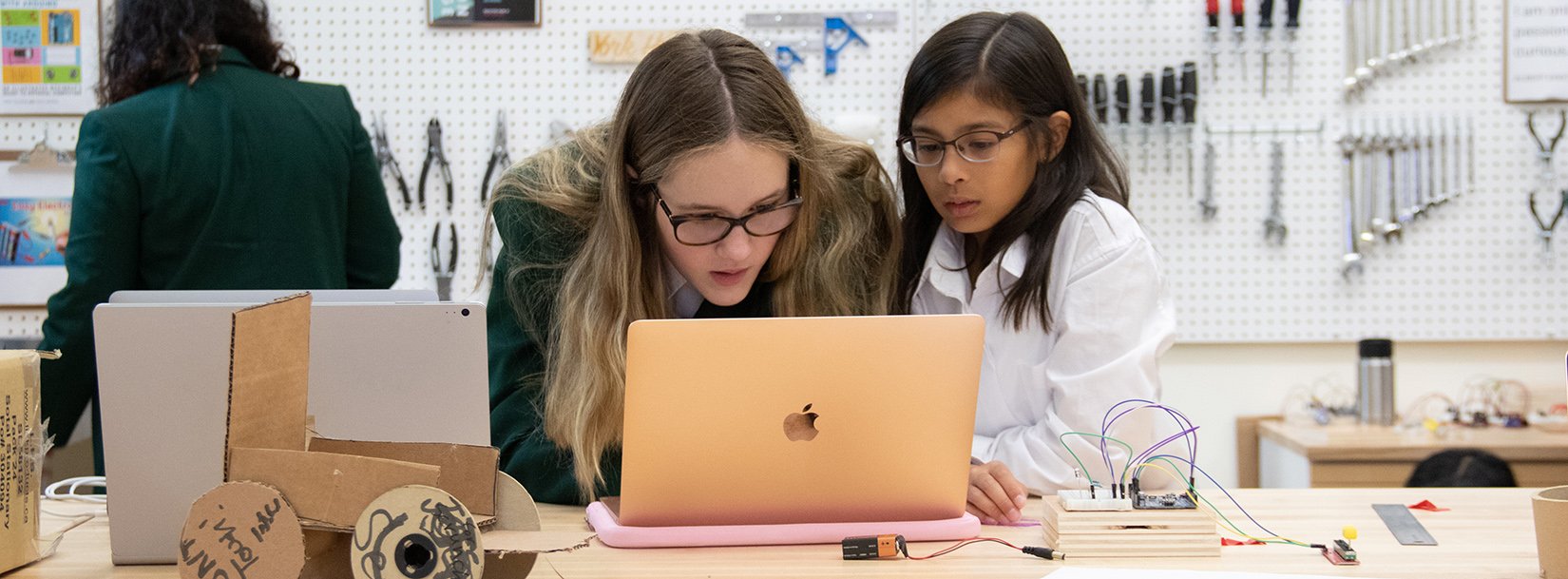
Rapid changes in the economy, politics, and technology call for strong and creative problem-solvers. At York House School, we are committed to enabling students to understand and act on issues and opportunities that matter to them and to the world. From Junior Kindergarten through Grade 12, we are designing learning opportunities for students to explore a problem, to seek diverse perspectives, and to make informed and innovative steps to a solution. As part of this school-wide goal, we are building on the strength of the STEAM Program in the Junior School and developing a vibrant STEAM Program in the Senior School.
We asked Nathan Reimer, Senior School STEAM Coordinator, to share more details on what we can look forward to for the formal launch of the STEAM program in the fall of 2020.
Q. What is the hope for the future of STEAM in the Senior School?
A. STEAM calls on students to engage in inquiry learning through the interdisciplinary lens of Science, Technology, Engineering, Arts and Math. Working collaboratively with our Senior School teachers, we hope that students will develop critical and creative thinking skills and attitudes to solve real-world problems. Through this approach, we hope to empower students to learn about the world around them and to contribute to it in meaningful and innovative ways.
Building on the already strong classroom learning experiences in the Senior School, the STEAM program will further extend students’ excitement to explore issues, be resilient when struggling to understand new things and not afraid to try and test innovative ideas.
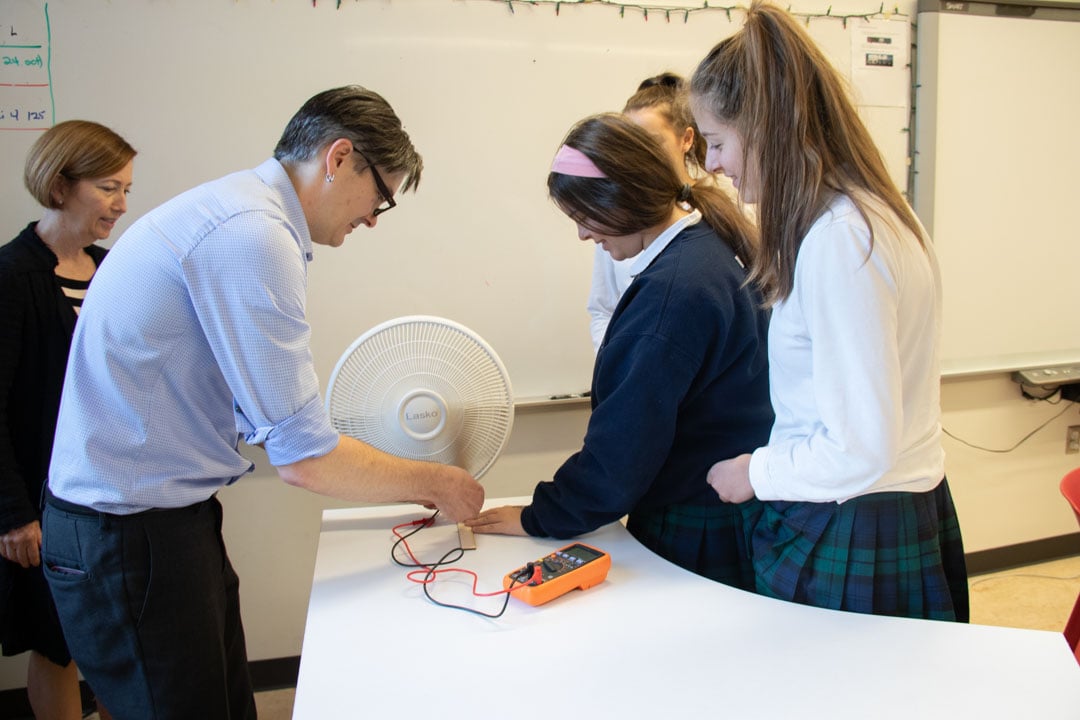
Q. What possibilities are you most excited about for this program? What are the benefits of having a STEAM program in the Senior School?
A. The pace in which our world is changing is increasing and young people need the skills to thrive in that sort of uncertain environment. I am excited that, through the STEAM program, students will have the opportunity to develop skills that prepare them to:
- Be life-long learners
- Think critically and creatively
- Have confidence in their ability to learn new skills and ideas
- Have a strong problem finding and solving skills
- Be able to collaborate and communicate as part of a team
- Develop an entrepreneurial mindset
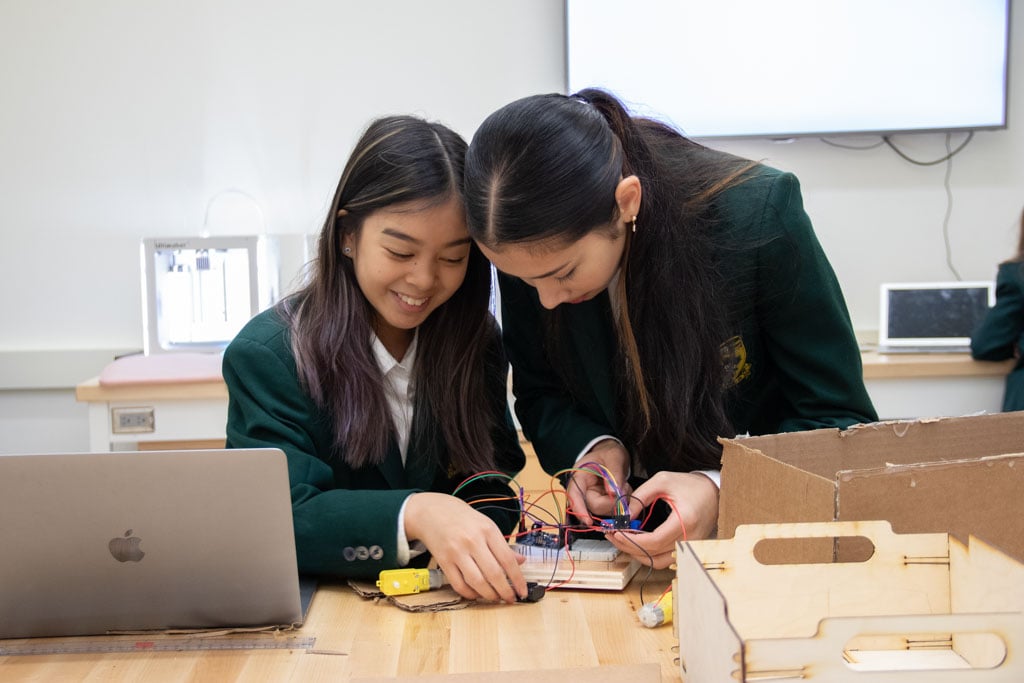
Q. We’re currently offering ADST (Applied Design Skills & Technology) for students in Grades 8 and 9 will ADST continue next year? And how will STEAM differ?
A. Grades 8 and 9 Applied Design Skills and Technologies are important stepping stones for STEAM. Through the ADST program, students are introduced to the design cycle as a way of focusing on and developing their creativity in problem-solving situations. Students learn to approach new, potentially challenging situations with a positive attitude, how to ask questions that identify the needs of a user, how to independently research and learn more about the technologies they need to develop their solutions, and how to test ideas and prototypes against a set of criteria.
In STEAM, students apply the skills they developed in ADST to solving real-world problems rooted in science and math. Projects might include exploring the impact of the seawall on soil erosion in order to develop alternative solutions, researching how chemicals are polluting our oceans and creating possible ways to reduce them, or investigating how alternative energies could be used in urban settings then prototyping their ideas through the application of technology, engineering, and the arts.
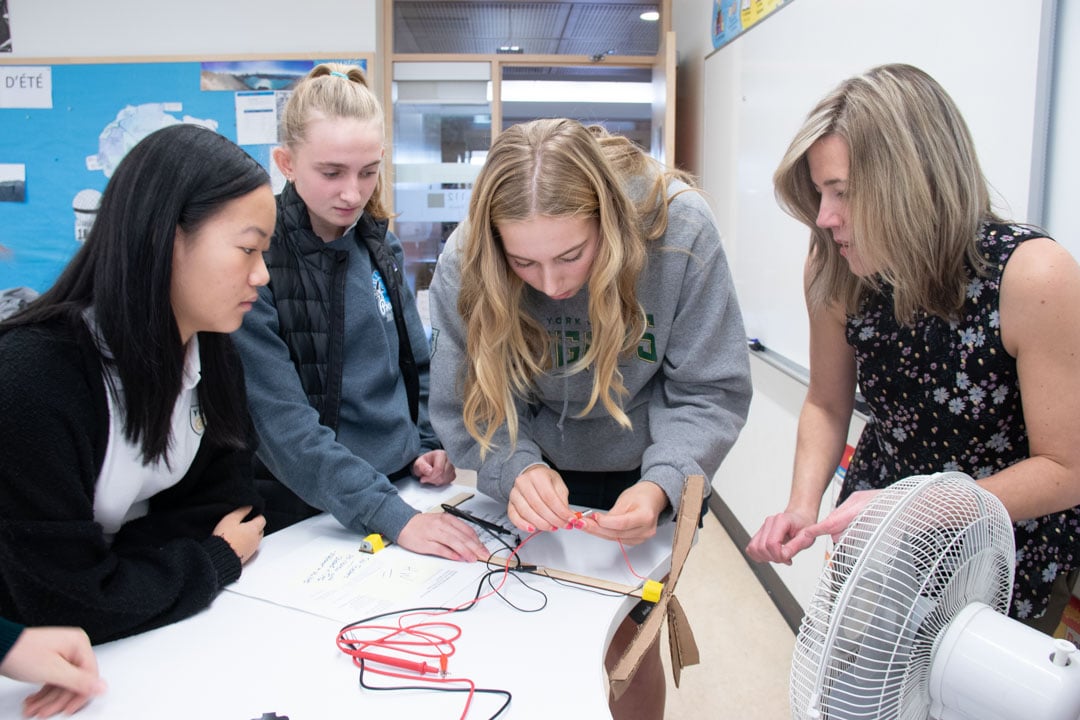
Q. Are there any strategies that you recommend that parents use to help their daughters prepare for STEAM?
A. Students need many opportunities to wonder, create, tinker, and communicate their ideas. Here are just a few ideas parents might use to foster these habits:
- Encourage your child to question things and trigger their curiosity with exposure to arts, culture and the world around them.
- Give them free time and space to explore and create.
- Demonstrate multiple ways to solve the same problem.
- Celebrate the process more than the product.
- Encourage them to read for pleasure.
- Discuss the learning opportunities of trial and error and seeing mistakes as part of the process of learning.

Q. Do you have anything else you would like to add?
A. I am excited to be working collaboratively with exceptional teachers in the Senior School and look forward to further developing this exciting program with them and with our students. I am also very grateful for the support of the Parents’ Association and the many other individuals who have already contributed in support of the STEAM and ADST programs. This is a very exciting time for our entire community and I am so happy to be part of it. We look forward to building exciting partnerships with community partners that will enrich the learning experiences of our students.

